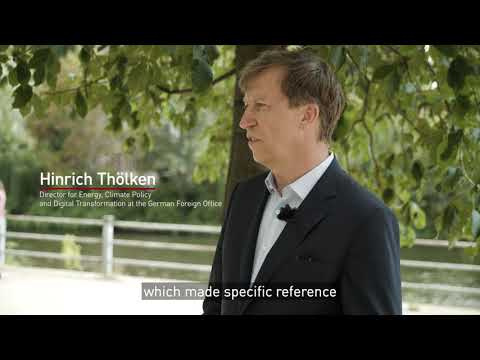Interview with Hinrich Thölken, new Climate & Energy Director at the German Federal Foreign Office
Vivekananda:"What do you think has changed since 2011? And what is happening now?"
Thölken:"I think a lot has changed since then. We see that the UN Security Council has been seized a couple of times with the issue of climate change and security. A number of resolutions have been passed. The first one being in 2017 the Resolution on Lake Chad which made specific reference to climate change and security implications. Secondly, the UN has created in the Secretary General's office a climate security mechanism, which is somehow slowly transforming the way UN acts and delivers on the issue of climate change and security; and thirdly, just to give you one example, how much support we find within UN members is that, a group of friends has been formed under German leadership in New York, which comprises now more than 50 UN member states."
Vivekananda:"Can you see any particular ways in which we can learn from public health risk responses and from digitalization to better address the risks presented by climate change and security?"
Thölken: "We often talked about flattening the curve with Covid-19 infections. But flattening the curve could also refer to flattening the curve of greenhouse gas emissions The second point is that we all took a very good lesson ‘in what does exponential growth actually mean?’ And there are many parts of the climate change debate where exponential growth does play a role. And the third aspect I would like to highlight here is that we have also taken a very good lesson in understanding what kind of importance scientific evidence, scientific facts has for policy making."
Vivekananda:"What more do you think needs to be done to address climate change and security risks?"
Thölken: "I would like to see more awareness that climate change is a security issue. Secondly, more people who are well trained and well equipped to perform their duties as diplomats, as UN experts, as representatives in difficult countries that climate change is a political issue. And the third aspect of course would be that we would have to be really earnest and serious in decelerating global warming. Because the best debate about security implications of climate change does not lead us anywhere if we cannot manage global warming itself."
Directed by: Raquel Munayer (adelphi). Produced by: Paul Müller-Hahl (Lichtbilder)










